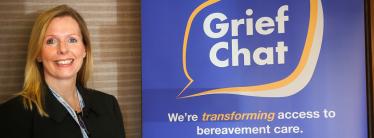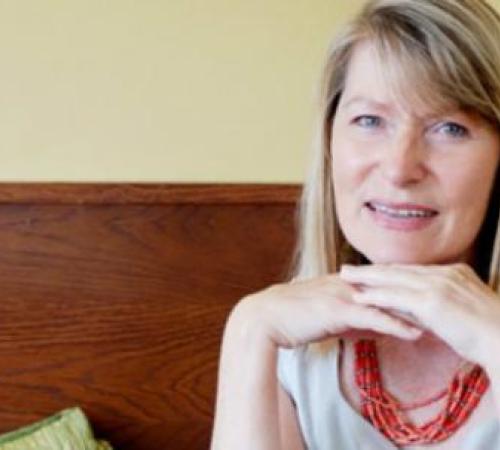
Meet our customer: female founder of Professional Help

How did your business start?
I was working in the bereavement charity sector but grew frustrated with the barriers that this type of work faced. I realised there was a gap in the market for employee counselling and bereavement care, as there was little support available to people working in businesses to support them with the difficult issues that life can throw at us. In the meantime, I got married acquiring 3 stepchildren, had another one of our own, moved to the countryside, and needed to work differently to complement my new life.
What are you most proud of so far?
Definitely, I’m most proud of our new online service, GriefChat. It had been a huge frustration throughout my fifteen years in the sector that you often couldn’t get an appointment with a counsellor, generally within 8 weeks. The waiting lists are long for free services and processes are lengthened due to the current systems. It’s just way too much time to go without support when you really need it.
GriefChat (external link) is an online service where you can speak to a professional usually within twenty seconds and is the first such bereavement service in the world. The instant messaging service enables people to connect directly and anonymously with a professional counsellor via any device.
What has been the biggest challenge for you setting up the business?
Having been in the charity sector for so long and then dipping out of work for a while bringing up my family, my confidence took a huge knock and I really wasn’t sure I could set something up on my own. It’s only really now after 6 years and many successes I really feel established again. I also live in Cumbria so the logistics have made it hard. Really slow internet, 4 children and poor transport links in a rural location can and have made things very difficult at times.
What important lessons have you learned along the way?
Persistence is number one for sure – being your own boss requires so much determination especially with all the other things going on in life. Also, delivering what you say you are going to do. Never over promise and under deliver. Being an expert in your field is very important too, knowing your industry inside out, as much as you can. Finally, never listen to the knockers, they will always be there.
What advice would you give to other people thinking of making the leap to start their own business?
Get some business education. I got involved with Lancaster University Business School and it’s the best thing I ever did. 90% of businesses fail in the first 5 years and I would say in the main this is partly due to people not being educated in business skills. I feel this is crucial to success. Also, surround yourself with positive people who want you to do well. A good support network is really important. Pay attention to every little detail within your business and forget about finishing at 5pm.
What if any challenges have you faced as a female entrepreneur?
While there clearly needs to be a shift in focus to give women fairer prospects in the workplace in general, I actually think it runs deeper than that. I believe businesses need to change their model for both men and women. We are in a different world now where men too can be a stay-at-home parent so companies need to show greater flexibility to all employees when it comes to things like childcare. Help the people with responsibilities more, make paternity and maternity leave more accessible and easier to take. Get a more family-friendly outlook.
What do you think needs to happen for there to be more female entrepreneurs?
Following on from the last point, I think models and attitudes in businesses needs to change, especially around family life. I think there is a feeling of guilt if women work too much after having children and this needs to be relinquished. Stop feeling guilty, send your kids to nurseries, it does them good to socialise for a little while from an early age. Take your fifteen hours a week free childcare. So many families I know do not use this facility thinking that they have to spend every hour they can with their children, especially in their first few years and it’s just not the case – it’s about having quality time not always quantity. This is a subject I am hugely passionate about, I still work and mentor at Lancaster University Business School and am working specifically with young women who want to be business leaders.
Discover more about Professional Help (external link)
Read more in our female founder series:
Female founder of Collab Associates (external link), a marketing consultancy
Female founder of Stage & the City, a performing arts school
Female founder of Snap Fashion, a fashion tech company
Female founder of Fearless Futures, a social justice training agency
Female founder of Availexe, a recruitment agency
Find out more about our Hiscox small business insurance.
Disclaimer:
At Hiscox, we want to help your small business thrive. Our blog has many articles you may find relevant and useful as your business grows. But these articles aren’t professional advice. So, to find out more on a subject we cover here, please seek professional assistance.


